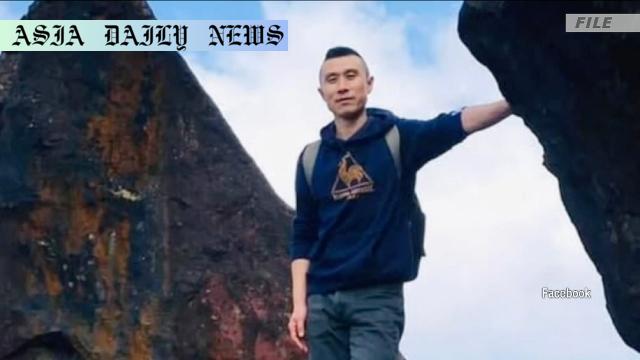Taiwan publisher sentenced to 3 years in China for inciting secession, raising concerns over cultural exchanges and free speech.
- Key Point 1: Taiwan-based publisher Li Yanhe sentenced by China to 3 years.
- Key Point 2: Li disappeared during a visit to China in March 2023; Chinese authorities cited ‘inciting secession’.
- Key Point 3: Transparency concerns raised over detainment and court ruling.
- Key Point 4: Incident casts doubt on cross-strait cultural exchanges.

A Contentious Verdict
The recent sentencing of Taiwan-based publisher Li Yanhe by a Shanghai court has sparked international debate and concern. Accused by Chinese authorities of ‘inciting secession,’ Li’s treatment raises grave questions about freedom of speech and the state of cultural exchanges between China and Taiwan. Li, who disappeared after traveling to China in March 2023, was born in China but has been living and working in Taiwan as the editor-in-chief of a publishing firm known for its critical perspectives on Beijing’s governance. His eventual sentencing to three years in jail has been met with fierce criticism, both domestically and internationally, particularly over the opaque nature of his detention, investigation, and trial.
Impact on Cross-Strait Relations
The sentencing strikes at the heart of already delicate cross-strait relations. Taiwanese cultural and literary circles have expressed alarm, stating that this development highlights broader issues concerning freedom of speech and the increasing difficulty of bridging the cultural divide with mainland China. Critics argue that the opaque legal process not only undermines trust but adds another layer of tension between the two political entities. This incident could dissuade other Taiwanese publishers, authors, and creators from engaging with the mainland, fearing detention or repression of their work.
Concerns Over Transparency and Fairness
Li’s case has drawn widespread criticism for its lack of transparency and fairness, with supporters stating that his arrest appears politically motivated. The entire process—from his sudden disappearance to the closed court proceedings in Shanghai—has fostered a perception that the Chinese government is targeting individuals who present dissenting views. Notably, Li’s publishing house has put out numerous works critical of Chinese governance, which may have invited scrutiny from authorities. By framing his activities as ‘inciting secession,’ critics say Beijing is setting a dangerous precedent of criminalizing ordinary cultural activities and intellectual exchanges.
The Broader Implications
This case highlights the precarious position of cultural figures navigating the fraught geopolitical realities between Taiwan and China. For Taiwan, which enjoys strong democratic values and press freedoms, this sentencing has been interpreted as yet another example of China undermining Taiwan’s sovereignty and worldview. On the other hand, for Beijing, it likely represents an attempt to exert control and signal to others the consequences of criticizing their governance. The broader implications extend well beyond Li Yanhe, with the incident prompting the global community to examine the influence of authoritarian regimes on freedoms most nations take for granted.



Commentary
A Concerning Trend in Freedom of Speech
The sentence handed out to Taiwanese publisher Li Yanhe is troubling on many levels. It exacerbates concerns surrounding press freedom in an already tense geopolitical climate. While China has long been known to take a hard stance on dissenting voices, this case underscores how far authorities are willing to go, even when such actions strain cultural and political relationships with critical regions like Taiwan. By labeling Li’s activities as ‘inciting secession,’ Chinese authorities may be seeking to suppress dissent and silence perspectives that challenge their centralized control.
Transparency Remains a Significant Issue
A key issue here is the lack of transparency surrounding Li Yanhe’s detainment and judicial process. A fair, open trial is a cornerstone of justice, yet reports indicate that Li’s case was handled away from public scrutiny, leaving more questions than answers about the evidence presented against him. This opacity gives rise to doubts about the legitimacy of the charges and the motives behind them. If Li’s detainment and conviction were truly centered around content published by his firm, it sets a troubling precedent for how China views and handles not only dissent but also freedom of creative and intellectual expression.
Repercussions on Cross-Strait Ties
From a broader perspective, the incident sends shockwaves through cross-strait relations. Cultural exchanges are an essential bridge between two vastly different systems, yet cases like this risk burning those bridges. How can there be even the semblance of mutual understanding and coexistence when one side is perceived as criminalizing harmless cultural activities? This case risks alienating not just Taiwan but also the international community that values freedom of speech and human rights. For Taiwan’s cultural community, the message is clear: engaging with the mainland comes with significant risk.
A Call for Global Attention
Ultimately, the international community must closely monitor such cases, as they represent broader trends beyond the Taiwan-China divide. The globalized world thrives on free trade, the free flow of information, and open communication. Cases like Li Yanhe’s show how easily these freedoms can be curtailed under authoritarian regimes, dampening the exchange of ideas that is critical to progress and understanding. It serves as a reminder for democratic nations to stand in solidarity for these values and provide vocal support for individuals who find themselves caught in similar circumstances.